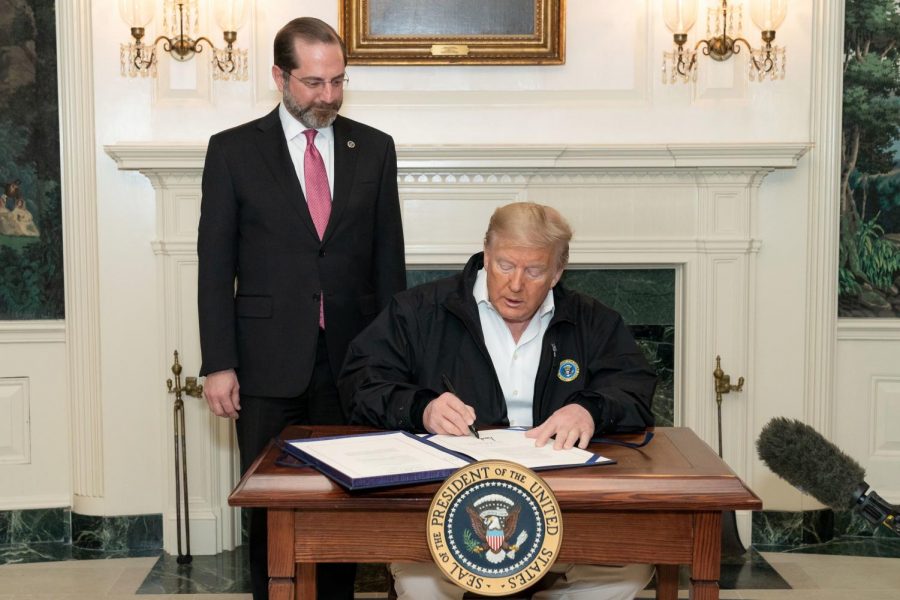Laws fly through Congress in light of COVID-19 crisis
A breakdown of the complicated laws passed and how it is affecting Americans.
(Official White House Photo by Tia Dufour)
President Donald J. Trump, joined by Secretary of Health and Human Services Alex Azar, signs the congressional funding bill for coronavirus response Friday, March 6, 2020, in the Diplomatic Reception Room of the White House.
May 3, 2020
Over the course of the last few weeks as the death and case count rose in America, citizens looked to congress to pass laws to protect them against the financial and health crisis before them. The most recent law, The CARES Act (Coronavirus Aid, Relief, and Economic Security), was signed by President Trump on March 27, 2020, securing $2 trillion towards financial relief for Americans, businesses, and health care establishments.
Before the CARES Act was passed, the Families First Coronavirus Response Act (FFCRA) was passed to help protect families that depended on schools for child care and as a food source. The FFCRA allows for families to get paid sick leave if they have to stay home and take care of themselves and/or their children. The act also guarantees that children that are dependent on school meals will get extra money provided via food stamps. As well as this, the act will temporarily suspend the requirement to have a job to be on the food stamp program.
“I think they did a good job with this act because it is a small solution to what lower class america is going through,” says senior Kaitlin Flinn, “they should keep these laws coming.”
The CARES Act involves the extension of the tax filing date to July 15th, 2020, and multiple financial benefits for Americans. The government will be giving one time checks of $1,200 to Americans with AGI (Adjusted Gross Income) up to $75k for individuals and $150k for married couples with an additional $500 per child. So basically if they make less than or equal to these amounts than they are qualified for that check. Checks will also be available for those that are not employed who rely on the SSA (Social Security Administration).
This will be helpful for many Americans because during this crisis many have lost their jobs being “non-essential” workers. The unemployment rate skyrocketed, and more people have filed for unemployment checks through the government than during the great depression. My dad is an “essential”, and he has been forced to temporarily lay off workers in the time being.
“Once things have returned to normal we will be able to hire some back,” said Dave Stander, “though it is heartbreaking that we cannot keep them employed in the meantime.”






